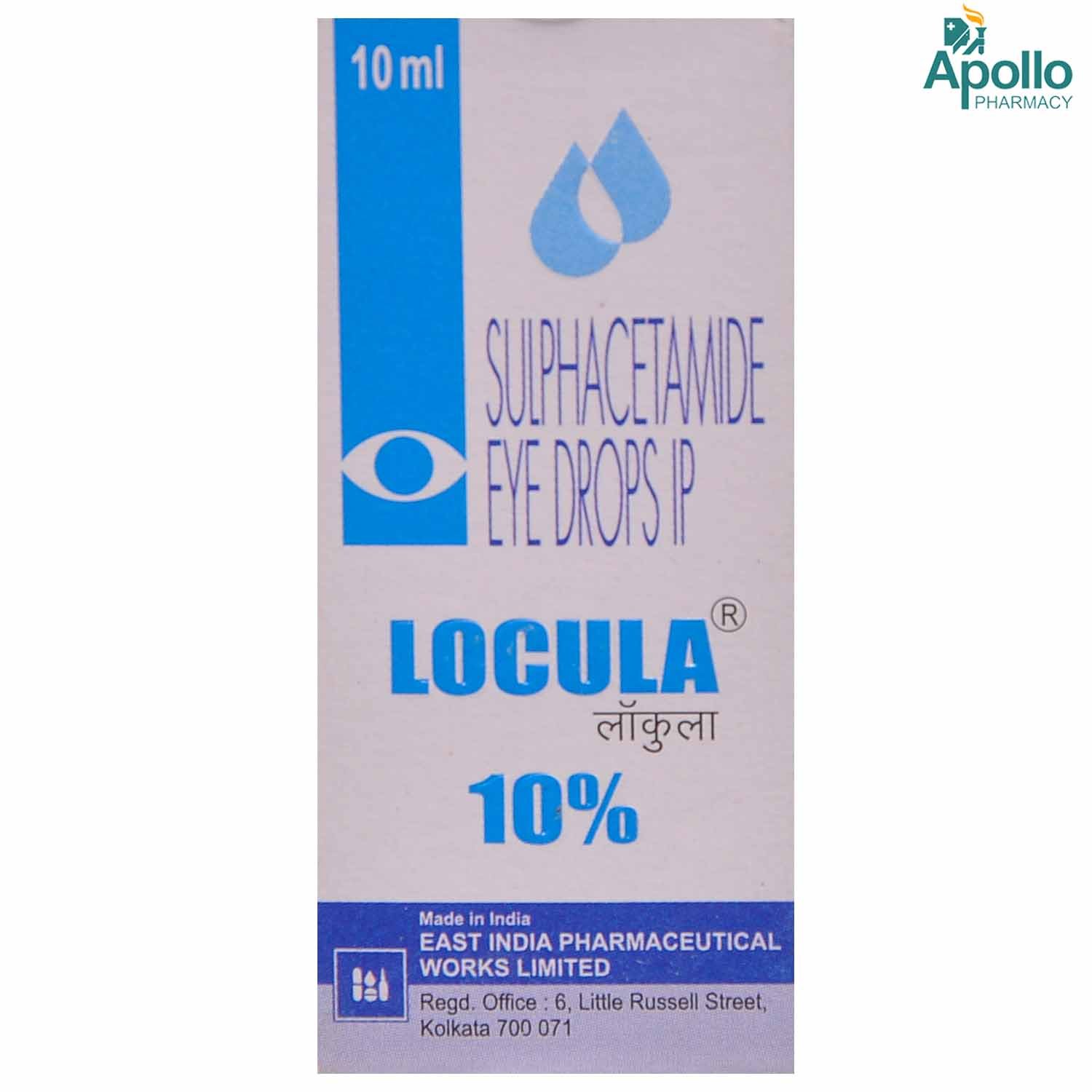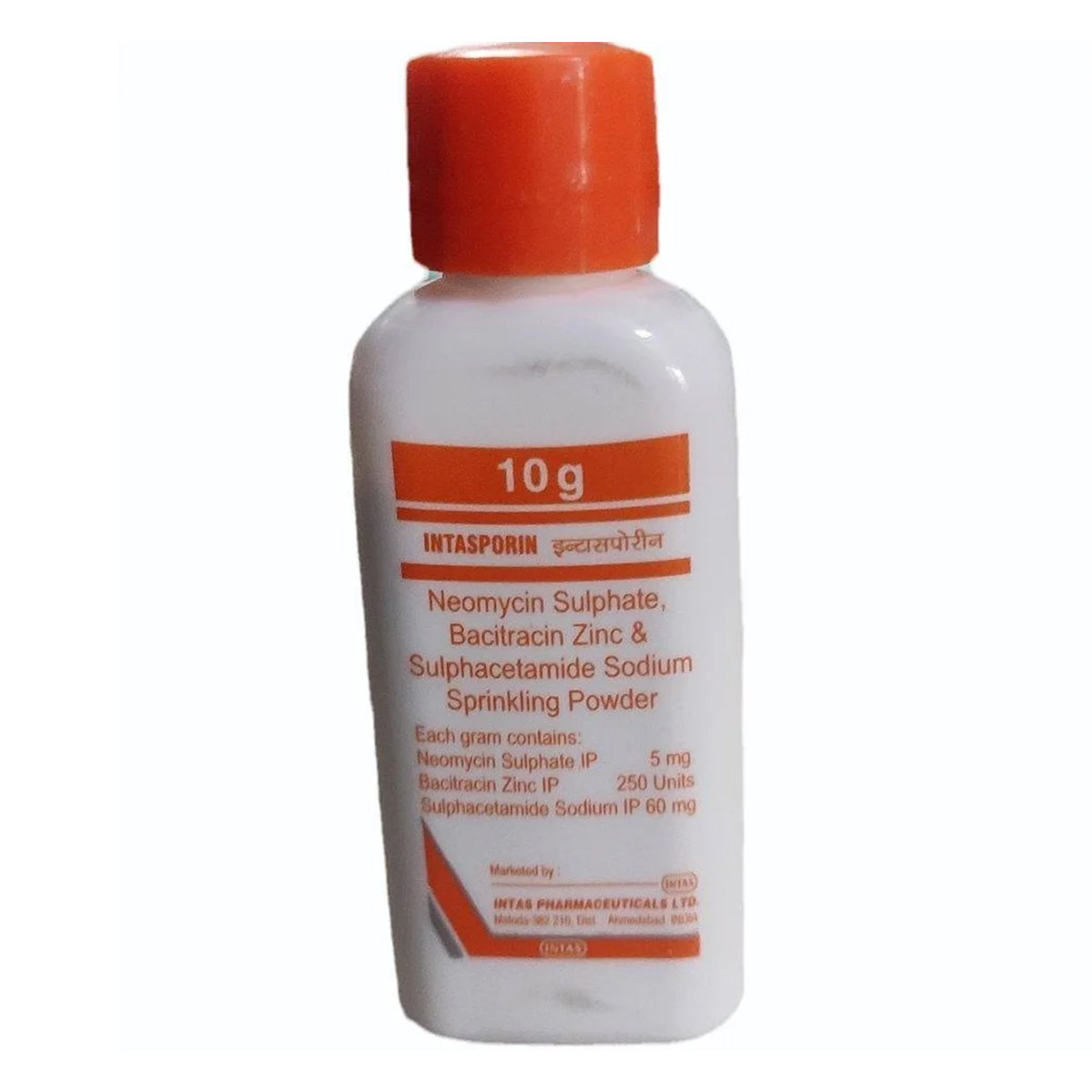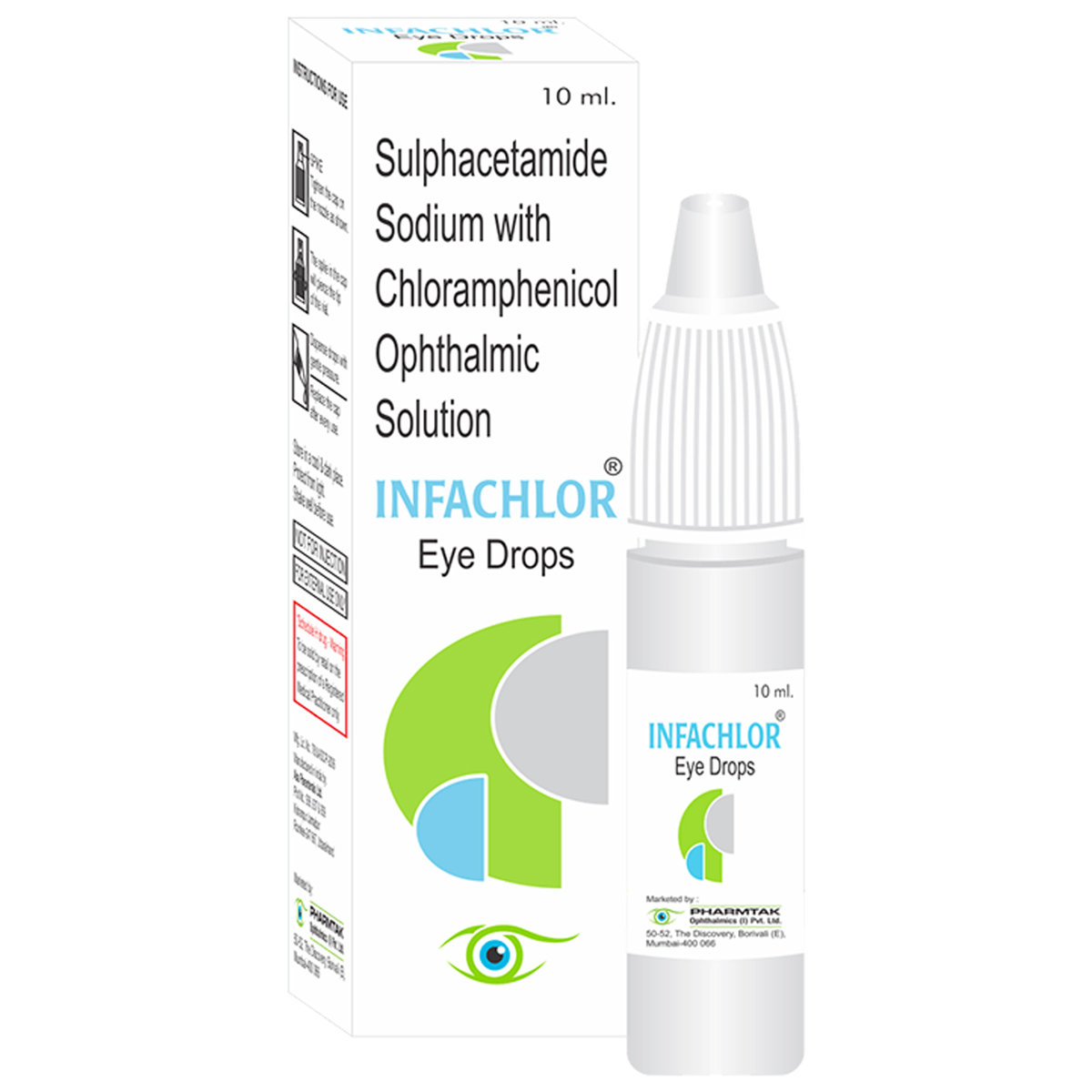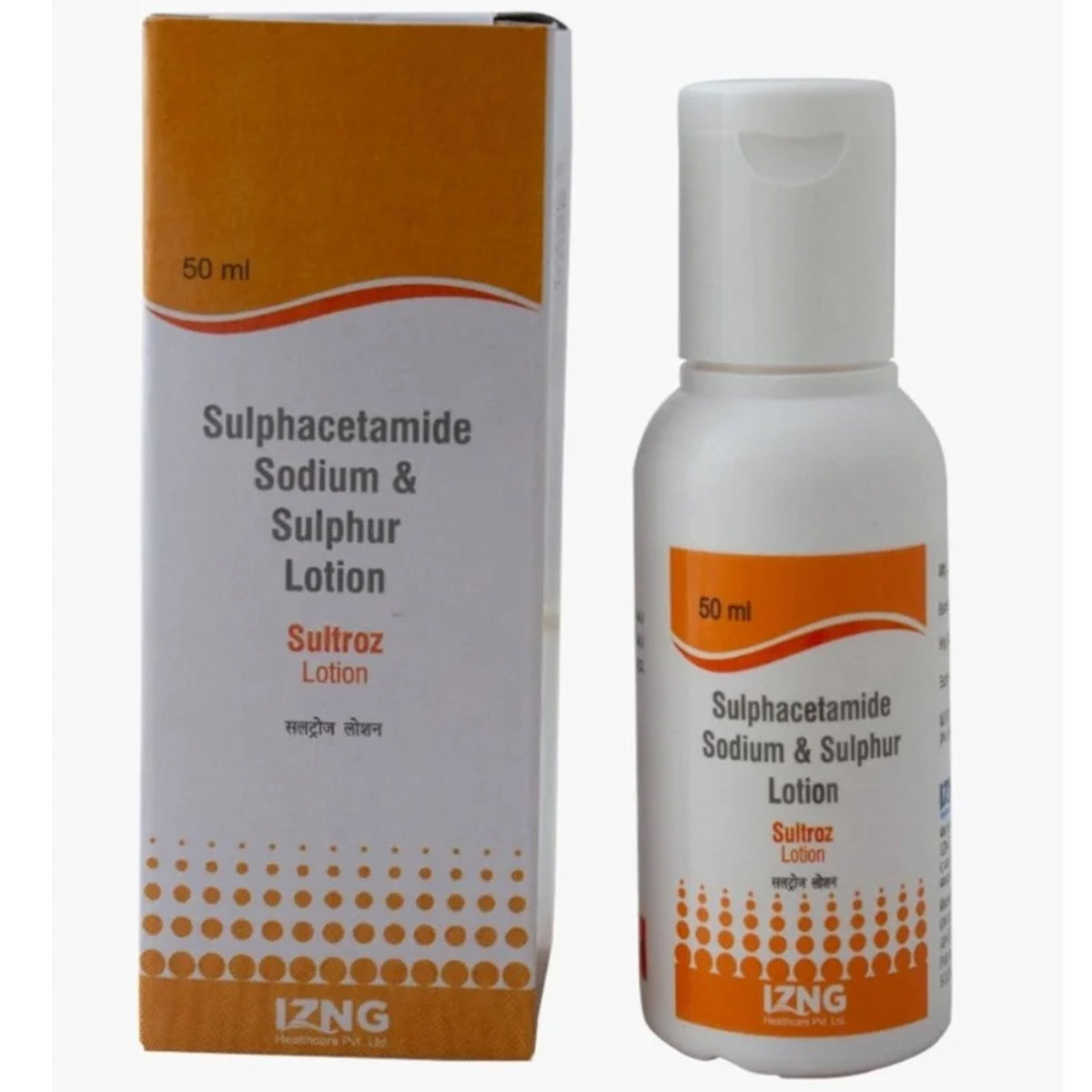Sulfacetamide
About Sulfacetamide
Sulfacetamide belongs to the class of medication called ‘antibacterial' primarily used to treat bacterial skin infections, acne (pimples), seborrheic dermatitis (red, flaking skin rash) and dandruff. Acne is a skin condition that occurs when the hair follicles become plugged with oil and dead skin cells.
Sulfacetamide contains ‘Sulfacetamide’ that prevents the production of folic acid (a nutrient) by bacteria essential for multiplication of bacteria. Thereby, Sulfacetamide kills bacteria and clears the infection. Sulfacetamide has a broad spectrum of antibacterial activity against a wide range of gram-positive and gram-negative bacteria.
Sulfacetamide is for external use only. You are advised to use Sulfacetamide for as long as your doctor has prescribed it for you depending on your medical condition. In some cases, you may experience certain common side effects such as dry skin, mild swelling, irritation, redness or itching of the skin. Most of these side effects of Sulfacetamide do not require medical attention and gradually resolve over time. However, you are advised to talk to your doctor if you experience these side effects persistently.
Before starting Sulfacetamide, please inform your doctor if you have any allergy to any antibiotic, or have kidney/liver problems. Let your doctor know if you use any prescription and non-prescription medications you are taking, including vitamins, before starting Sulfacetamide. Do not use Sulfacetamide on your own as self-medication may lead to antibiotic-resistance in which antibiotics fail to act against specific bacterial infections. Do not use Sulfacetamide to treat serious burns, deep or puncture wounds, or raw areas without consulting a doctor. It is essential to let your doctor know if you are pregnant, planning to conceive, or a breastfeeding mother.
Uses of Sulfacetamide
Medicinal Benefits
Sulfacetamide contains ‘Sulfacetamide, an antibacterial medication used to treat bacterial skin infections like acne (pimples), and Seborrheic dermatitis (red, flaking skin rash). It works by preventing the production of dihydrofolic acid (a nutrient). Dihydrofolic acid is essential for the formation of proteins and nucleic acid, which are necessary for the bacteria's survival. By inhibiting this, Sulfacetamide kills the bacteria, stops their growth, and clears the infection. Sulfacetamide has a broad spectrum of antibacterial activity against a wide range of gram-positive and gram-negative bacteria.
Directions for Use
- Follow your doctor's instructions on the dosage and timing of this medication to ensure safety.
- Apply a small amount of Sulfacetamide to the affected skin area with clean, dry hands, and gently massage it in.
- Sulfacetamide is for external use only.
- Wash your hands before and after use.
Storage
Side Effects of Sulfacetamide
- Dry skin
- Mild swelling, irritation, redness or itching of the skin
Drug Warnings
If you are allergic to Sulfacetamide or any other medicines, please tell your doctor. Let your doctor know if you have any kidney, gastrointestinal, and heart diseases before using Sulfacetamide. Please inform your doctor if you are using any prescription and non-prescription medications you are taking, including vitamins, before starting Sulfacetamide. If you are pregnant or breastfeeding, please inform your doctor before using Sulfacetamide. Do not use Sulfacetamide to treat serious burns, deep or puncture wounds, or raw areas without consulting a doctor as it absorbed highly when applied on burned skin and open wounds and can cause kidney problems. Do not stop taking Sulfacetamide even if you feel better without asking your doctor as your symptoms may come back and may even worsen your condition.
Drug Interactions
Drug-Drug Interactions: Inform your doctor if you are using other antibiotics (silver sulfadiazine).
Drug-Food Interactions: No interactions found.
Drug-Disease Interactions: If you have asthma, lupus or sulfite allergy, inform your doctor before using Sulfacetamide.
Drug-Drug Interactions Checker List:
Safety Advice

Alcohol
cautionNo interaction found/established. Please consult your doctor before using Sulfacetamide.

Pregnancy
cautionSulfacetamide is a pregnancy Category C drug. It is advised to consult your doctor if you plan to conceive or already pregnant before starting Sulfacetamide.

Breast Feeding
cautionIt is advised to consult your doctor if you are a breastfeeding mother before starting Sulfacetamide.

Driving
safe if prescribedSulfacetamide usually does not affect your ability to drive or operate machinery.

Liver
cautionLet your doctor know if you have any history of liver diseases or hepatic impairment. Your doctor will weigh the benefits and potential risks before prescribing Sulfacetamide.

Kidney
cautionLet your doctor know if you have any history of kidney diseases or hepatic impairment. Your doctor will weigh the benefits and potential risks before prescribing Sulfacetamide.

Children
unsafeSulfacetamide is not recommended for children younger than 12 years old.
Habit Forming
Diet & Lifestyle Advise
- Use mild soap while taking baths and prefer warm baths.
- Avoid harsh products on your skin.
- Do not scratch or pick your skin to avoid getting the affected area infected.
- Manage stress, eat healthily, drink plenty of water, exercise regularly, and get plenty of sleep.
- Do not walk barefoot at places like gym showers to prevent bacterial infections.
- Avoid or limit the intake of alcohol and caffeine.
- Eat probiotics and a diet rich in vitamins can help to improve eye health and ward off infection.
Special Advise
Do not take Sulfacetamide on your own as self-medication may lead to antibiotic-resistance in which antibiotics fail to act against specific bacterial infections.
Use of Sulfacetamide for prolonged may result in a new fungal eye infection (secondary infection). Do not use Sulfacetamide for longer than prescribed.
Consult your dermatologist if you do not notice any improvement after 4-6 weeks of treatment with Sulfacetamide.
If the acne doesn't improve, ultrasound scanning of the abdomen is advised to check if there is any possibility of PCOD (Polycystic Ovarian Disease).
Patients Concern
Disease/Condition Glossary
Acne vulgaris (acne) is a skin condition caused when the hair follicles are plugged with oil and dead skin cells. Whiteheads, blackheads, pimples, cysts, and nodules are all types of acne. It commonly occurs in teenagers though all age groups are affected.
Seborrheic dermatitis is a skin condition that causes an itchy rash with dry, flaky scales on the skin that contains oil glands such as the scalp, face, back and upper chest. It may also cause stubborn dandruff. The treatment for Seborrheic dermatitis includes medicated lotions, shampoos, creams and self-care.
Dandruff: It is a scalp condition characterised by dry, itchy, white flakes of skin on the scalp. It is not contagious but can be embarrassing. The symptoms include itchy scalp, red, oily, scaly skin and oily, large white or yellow flakes. Dandruff may be triggered by a fungus called Malassezia. Certain factors such as stress, hormones and age can cause fungus to multiply more quickly than usual.
FAQs
Sulfacetamide is used to treat bacterial skin infections, acne (pimples), seborrheic dermatitis (red, flaking skin rash) and dandruff.
Sulfacetamide is not recommended for use in fungal or viral skin infections. It is effective only against bacterial eye infections (conjunctivitis), and skin infections like acne (pimples), Seborrheic dermatitis (red, flaking skin rash).
You are recommended to use Sulfacetamide for as long as your doctor has prescribed it. However, if the symptoms persist or worsen after using Sulfacetamide for 1 week, please consult a doctor.
You are recommended to inform your doctor before using Sulfacetamide with silver sulfadiazine as Sulfacetamide may interact with it.
Please do not stop using Sulfacetamide without consulting your doctor even if you find symptomatic relief as discontinuing suddenly may worsen the infection or cause recurring symptoms. Therefore, complete the full course of Sulfacetamide as your doctor has prescribed it, and if you experience any difficulty while using Sulfacetamide, please consult your doctor.








